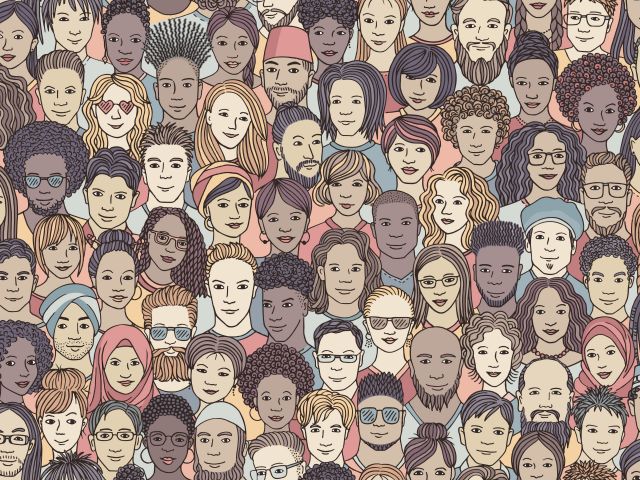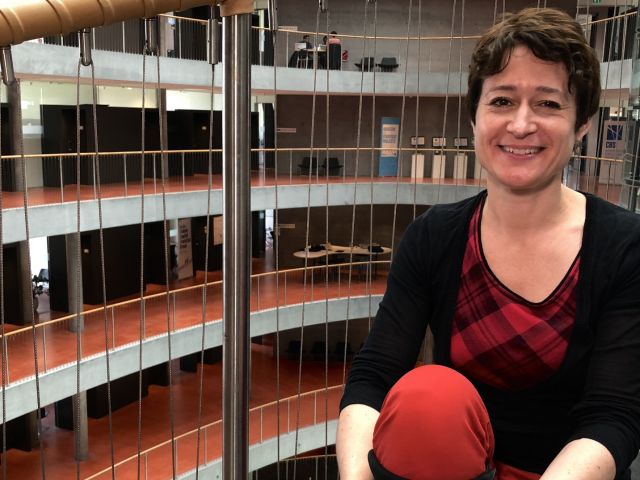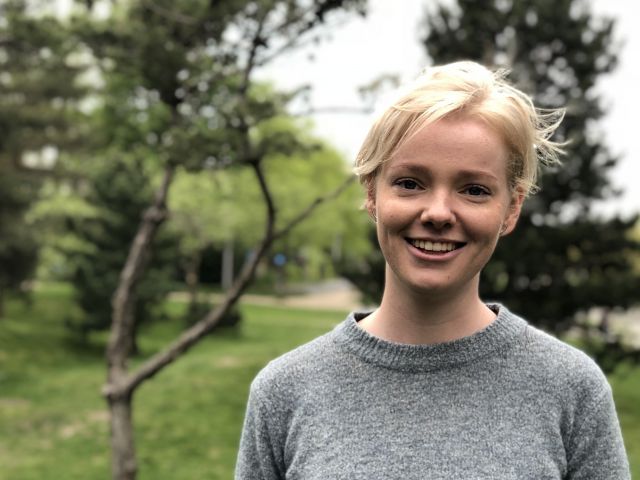Jannick Friis Christensen defended his PhD thesis online: “It was rather an anticlimax”

(Photo by Anna Holte)
Just before the summer vacation, Jannick Friis Christensen defended his 380-page PhD thesis on diversity management in front of 70 attendants, opponents and jury members. It all proceeded as normal, however, due to the risk of infection, he was forced to carry out his defense in an alternative manner: online.
Normally, a PhD defense is a ceremonial event. Attendants are elegantly dressed, and afterwards the star of the event celebrates alongside the audience and jury with an ice-cold glass of sparkling wine.
However, in these COVID-19 times, normality has taken a back seat. So when Jannick Friis Christensen recently defended his PhD thesis, he wasn’t standing in front of a well-dressed jury and an audience in a lecture hall.
Instead, he was sitting in front of a computer in his living room at home while defending three years of hard work.
Everyone logged out and that was that
When Jannick Friis Christensen began working on his PhD, he certainly never thought in his wildest dreams that the feeling of freedom when his extensive workload was over would come from his computer screen.
Yet that was exactly what happened recently when he had to defend his PhD online due to COVID-19 restrictions.
And although the decision to make the defense an online event was made a couple of months earlier to give Jannick Friis Christensen some time to come to terms with the situation, he was still a bit sad that things did not turn out as he had hoped.
“At first, I was quite disappointed. It’s three years of work, and at the same time, I’m moving from one research department to another, so the physical reception would have been a great opportunity to say goodbye to my former colleagues properly,” he says and goes on:
“So, it was rather an anticlimax, I would say, because when the defense session was over, everyone logged out and that was that.”
Despite the anticlimax Jannick Friis Christensen felt after his defense, he did manage to celebrate his new PhD title.
“I arranged my own private reception where I got to celebrate. However, due to COVID-19, I was forced to invite only 50 guests, which reduced how many friends, family and colleagues I could invite.”
“But I did get my much-needed glass of champagne, and the day after, I received a large bouquet of flowers from CBS,” he says with a smile in his voice.
Diversity is nothing in itself
Indeed, a glass of sparkling bubbles seems appropriate after three years of constant research, reading and writing. Especially when the work is an academic critique of existing practices and assumptions among Danish businesses.
Boiling a 380-page PhD down into a single sentence is quite a challenge. However, the essence of Jannick Friis Christensen’s thesis is diversity management, and he takes a critical view of diversity in the business world.
In Danish businesses, he explains, managers have a blinkered focus on diversity management, with people who are interpreted as being different from the norm in an organization being taught to fit in with traditional ways of doing things that are based mainly on a masculine or old-fashioned modus operandi.
“For instance, through courses and mentoring schemes, businesses train women to compete on equal terms with men. Ethnic minority employees are taught to follow Danish labor norms. And LGTBQ+ workers are “helped” to come out of the closet in front of their colleagues,” Jannick Friis Christensen explains.
And according to the newly hatched PhD, this procedure misinterprets the goals of diversity management.
“By doing this, organizations end up buying a pig in a poke, because they don’t get the diversity out of diversity. Instead, they make people conform themselves to comply with the existing scheme of the organization,” he says and continues:
“In other words, women don’t get to climb up the career ladder on their own terms, but on the organization’s terms based on masculine ideals. That eliminates the possibility of trying out a feminine management style, for example.”
In his thesis, Jannick Friis Christensen argues that if business owners want to implement diversity management in order to make their organizations more creative and innovative, they must ask themselves which fundamental normative assumptions are featured in their organizational practices that could unnecessarily exclude certain groups of people.
“Therefore, one of my most radical claims in my thesis is that diversity is nothing in itself. Diversity only becomes diversity in relation to something else: women are no more diverse than men, but they become a diversity group in relation to men if the men within the organization make up the majority of the management group,” he says.
Positive experiences and a new job
Even though the online PhD defense was a somewhat anticlimactic experience, Jannick Friis Christensen actually found some positive aspects about the alternative way of defending his thesis.
“Although around 70 people attended the session, I could only see and speak to one attendant at a time. That took a lot of pressure off my shoulders because under normal circumstances, all 70 people would have been sitting in the same room looking at me, which can be rather intimidating,” he explains and goes on:
“At the same time, defending my thesis online forced me to be even more precise and thorough than I would have been in a lecture hall. Online you can’t gesticulate and use your body language directly to prove your point as you can in physical surroundings. Therefore, I had to make sure that my manuscript made perfect sense to make myself as understandable as possible.”
“And to me, those were some very positive discoveries about defending a PhD online.”
Now, Jannick Friis Christensen can finally add PhD after his name and has just started a new job as a postdoctoral researcher at the Department of Management, Politics and Philosophy located in Porcelænshaven at CBS.
There, he will continue his diversity research in a similar vein.
“My new colleagues and I will soon be starting a new research project about the annual Pride Parade. More specifically, we want to approach it scientifically as a sort of civil religion. I’m really looking forward to it. I think it will be very interesting!”






































































































































Thank you Luisa for your comment. It is also my hope that organistions will take inspiration from my work and the work of others that take norm-critical approaches to organising and researching diversity. Sadly, I can only be one place at a time, but I’d like to encourage people to put my disseration to use – and I can always find time to meet and discuss it over a cup of coffee 🙂
Your research sounds incredibly interesting and, above all, useful. I hope that the different companies (not only Danish) can learn from the findings and approach diversity in a “real” inclusive way and not just adapt diversity into the norm – which defeats the purpose of diversity in the first place. Congrats!